Political aspirations revealed: UQ activist Drew Pavlou in talks with Bob Katter
He made a name for himself by taking on the University of Queensland in an epic battle over China. Now Drew Pavlou looks set to make his next political move.
News
Don't miss out on the headlines from News. Followed categories will be added to My News.
He’s back now, striding past the sandstone archways where the odd and unsettling episode began. Back to the University of Queensland that suspended him, back learning, back to finish his degree. But after living through one of the most intense experiences any undergraduate has endured, just where Drew Pavlou goes from here is the $300,000 question.
“Sometimes I feel lost,” says the 22-year-old, plucking grass from the lawn of the Great Court. “Where do I actually go, what do I do?”
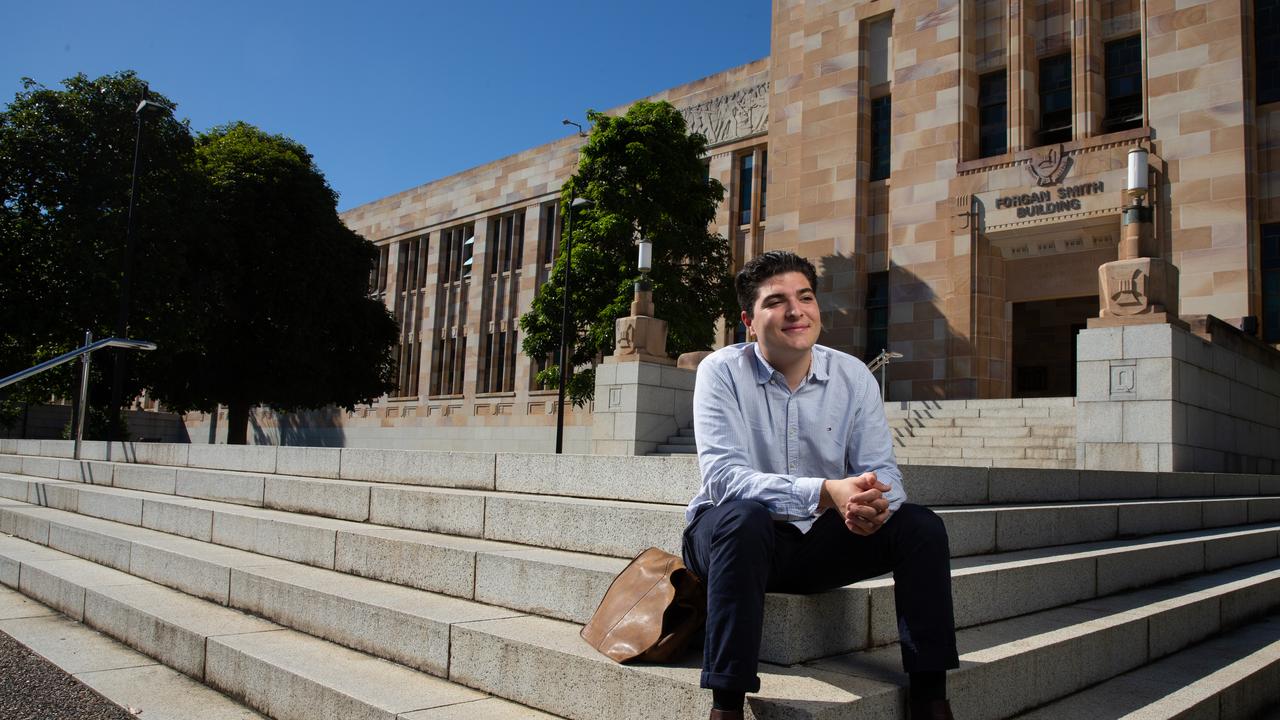
Before the international spotlight hit him after he grabbed a megaphone and – like so many before him - started a protest chant, Pavlou had a view of his future.
He’d be a humanities professor, a politically active one, strolling these halls with an inquiring mind and ready argument.
“I always thought there could be no better career than ensconcing myself within the university; writing and teaching and lecturing and mentoring,” says Pavlou. “But then my life took a 180-degree turn.”
Pavlou’s world started to shift on July 24, 2019, when the megaphone was wrenched from his hands by a still-unidentified man, incensed by Pavlou’s chant against the Chinese president, Xi Jinping.
A scuffle ensued, then a stand-off between Chinese government loyalists and a band of UQ students who were protesting a range of things: the crackdown on protesters in Hong Kong, the persecution of the Uighur ethnic minority in China, the presence of the China-funded Confucius Institute on UQ’s St Lucia campus.
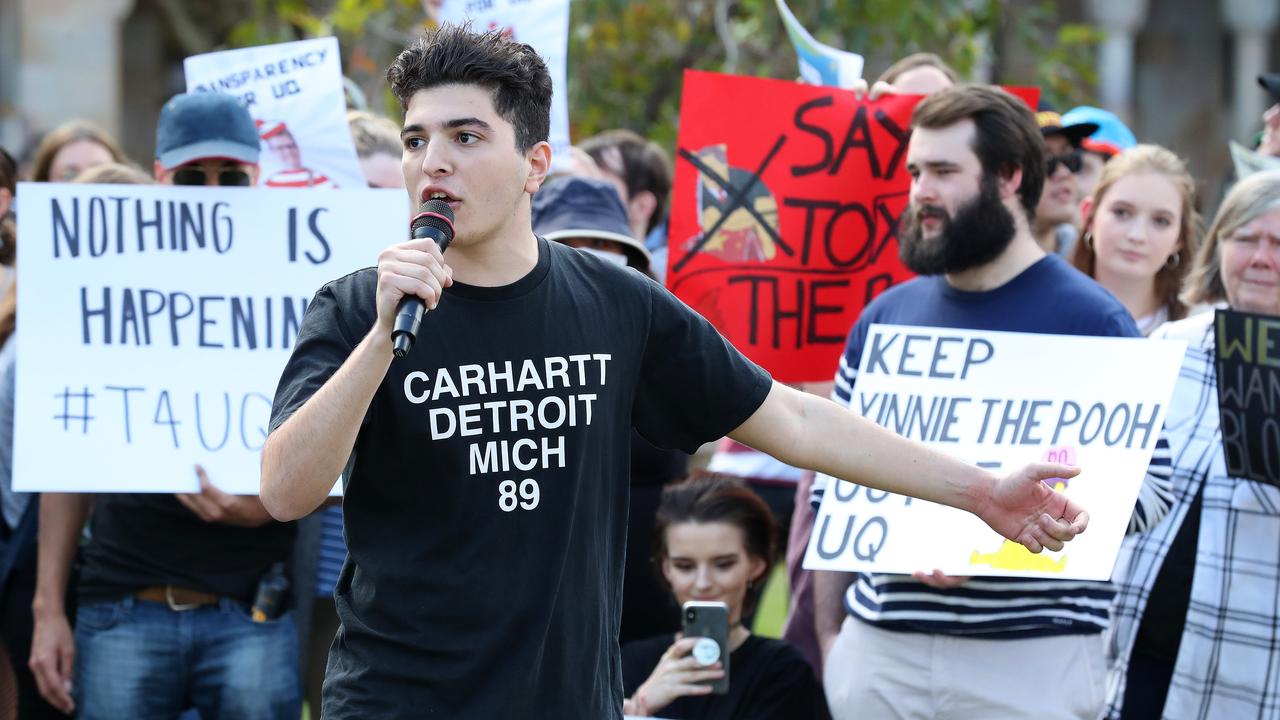
Pavlou could have stopped then. He could have packed up his placards and gone back to his books.
But a combination of indignation, idealism, ego and pigheadedness kept him going. He organised more protests. He poked and prodded the UQ administration.
He stood for and won a prized seat on the UQ Senate.
Then UQ returned fire. A dossier filled with the misdemeanours of the brash undergraduate dropped in April 2020 and Pavlou - a university award-winner and disciplinary action cleanskin before the protest – faced expulsion.
He received a two-year suspension, later reduced to six months after the pro bono intervention of well-known Brisbane QC, Tony Morris.
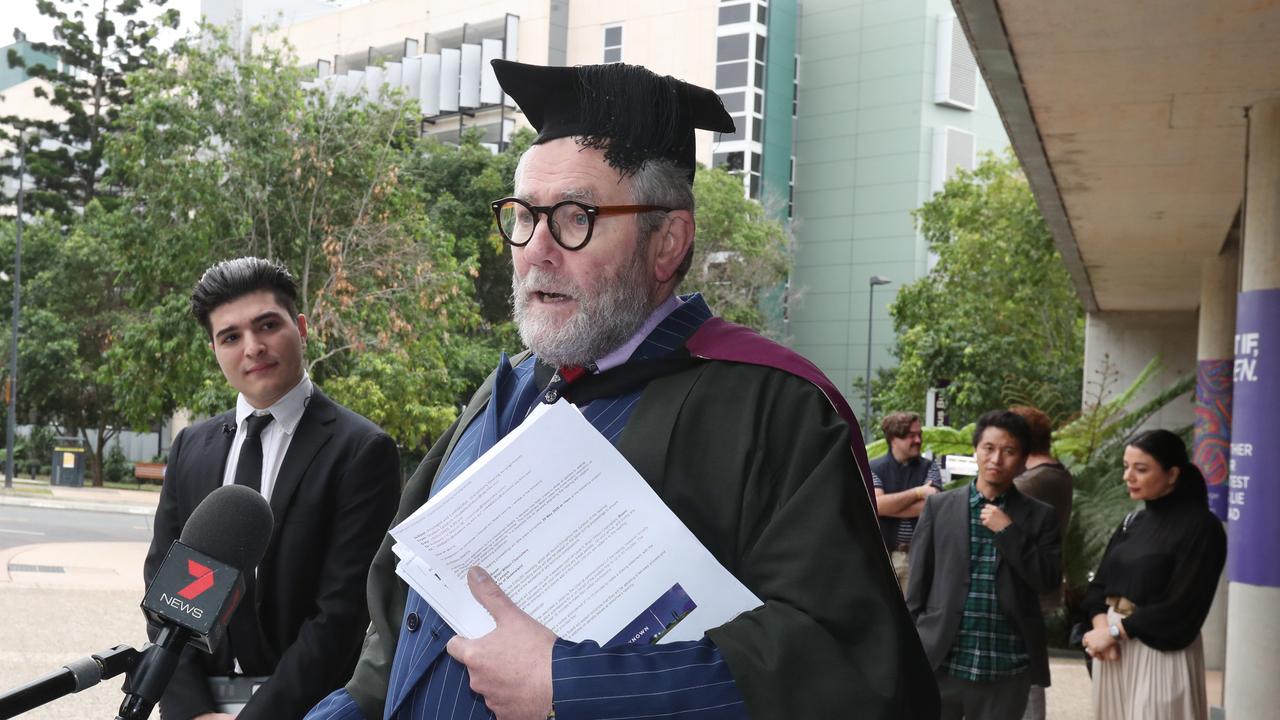
It didn’t come cheap: the process of sanctioning one of its own fee-paying students cost UQ just shy of $300,000 for top-tier external lawyers and public relations advice.
We know this because of UQ evidence to a Parliamentary Joint Committee on Intelligence and Security, one which was largely driven by the fallout over Pavlou’s protest amid concerns about Chinese influence in Australian universities. “If you include all the internal hours,” says Pavlou, “the whole thing cost them at least half a million.”
It’s a point of pride to the young rabblerouser. But the personal cost to Pavlou has been profound. His parents were outraged at his activism, friends dumped him, he suffered depression.
Some on the Left of politics, his natural home, accused him of being racist against the Chinese, a charge he vehemently denies, arguing it is the Chinese Communist Party government and its “f--king Uighur genocide” that he takes issue with.
Into the breach have come those of the Right. Liberal Senator James Paterson, who headed the parliamentary inquiry, is “a great man”, says Pavlou.
He’s now “got so much respect” for maverick MP Bob Katter, who lobbied for the inquiry. Watch this space: Katter has even been in talks with the unorthodox Greek Orthodox about Pavlou running as a Senate candidate for Katter’s Australia Party.
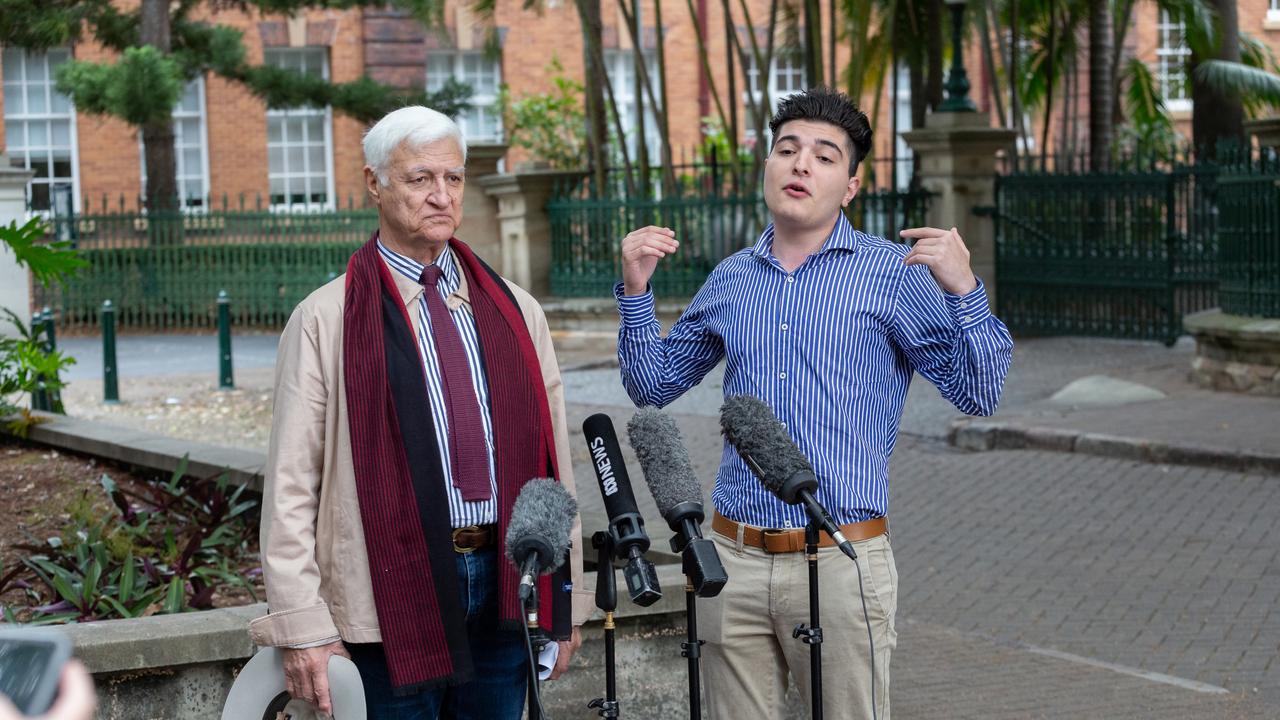
Influential right-wing commentator Alan Jones took up Pavlou’s cause on the News Corp-owned Sky News. And he’s now working part-time for his barrister, Morris, “who is more to the Right” than Pavlou.
Politics makes for strange bedfellows indeed in the high-risk, high-stakes world of China/Australia relations.
And Pavlou – the not totally formed, searching, questioning son of conservative grocers – is in the uncomfortable position of trying to straddle both sides.
AN ACTIVIST IS BORN
Let’s be clear. Pavlou can be annoying. He says so himself.
He is impetuous, can be foul-mouthed, posts provocative and insensitive memes, has a knack for over-the-top theatrics and is prone to hubris.
“Young Greek men all have egos,” he says, flashing a grin.
But he’s also bright (his grade point average is 6.578), well-read, does not drink or take drugs, big-hearted and filled with the idealism of youth. He wants to see change in an international political and economic system that he believes is making his generation sick.
At age 15, he was a mess.
“I had no path or direction,” he says. “I was struggling with life; I felt there was no purpose and really wanted to die.”
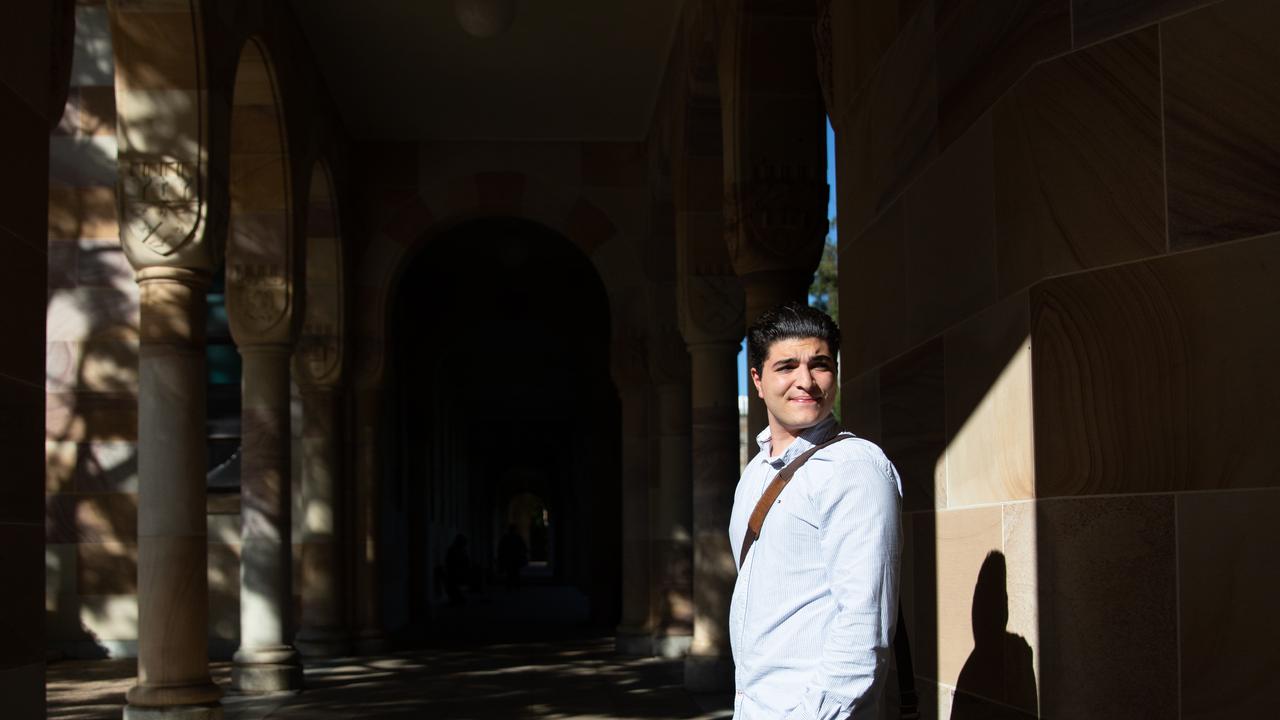
He started seeing a therapist for anxiety and depression.
But someone else came into his orbit at the same time. US Senator and democratic socialist, Bernie Sanders, had announced his tilt for the 2016 Democratic presidential candidature and Pavlou was transfixed.
“He was giving voice to the things I always felt in an inchoate way,” says Pavlou.
“I realised that part of what I was feeling – and so many of my friends were feeling – was loneliness and Bernie was able to explain that it’s the economic and social conditions in society that lead to us splitting apart from one another.
“We’d been sanctifying greed with this turn to neoliberalism and hyper-competition and
that was fraying at the ties that bind us in society,” he says.
“I realised this was a product of decisions made by the powerful and these decisions could be changed. They weren’t set in stone.”
He decided to “engross myself in the world of ideas”.
“It was a path out of the dumps, out of my place of misery where I could try to do good. It gave me meaning.”
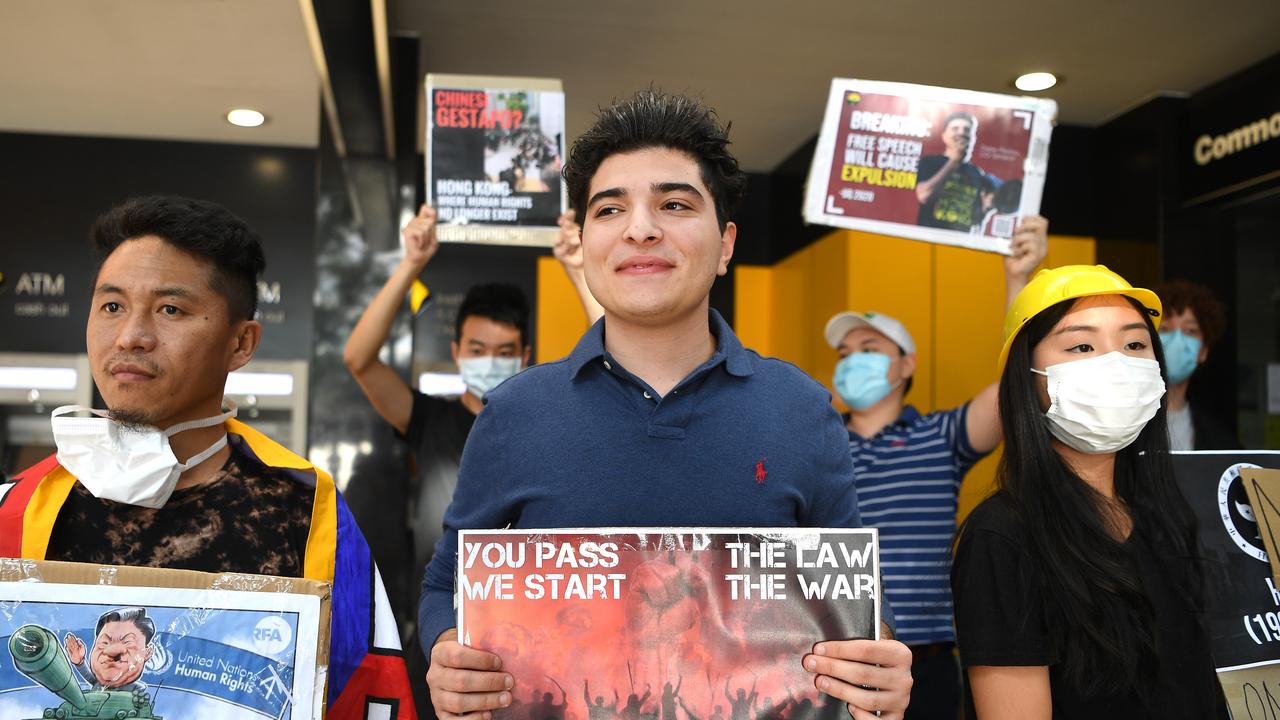
By 2017, in his first year at uni, Pavlou began learning about the persecution of Muslim Uighurs in the Chinese province of Xinjiang, or East Turkestan as many Uighurs prefer. Internment camps, or “re-education centres”, were cropping up in China; allegations of genocide of the ethnic minority started filtering out.
It affected Pavlou.
He’d studied the genocide of the Tutsi minority of Rwanda in the 1990s at school, and how the world had ignored the plight of the African tribe, arguably for political and economic reasons.
He saw history repeating itself.
Come 2019, a confluence of issues ignited the activist in him. Hong Kong protesters – “People my age!” – were taking to the streets in defiance of the CCP and small rallies were being held at UQ. “I was watching them and I thought, ‘They’re f--king brave, I want to start supporting them’.”
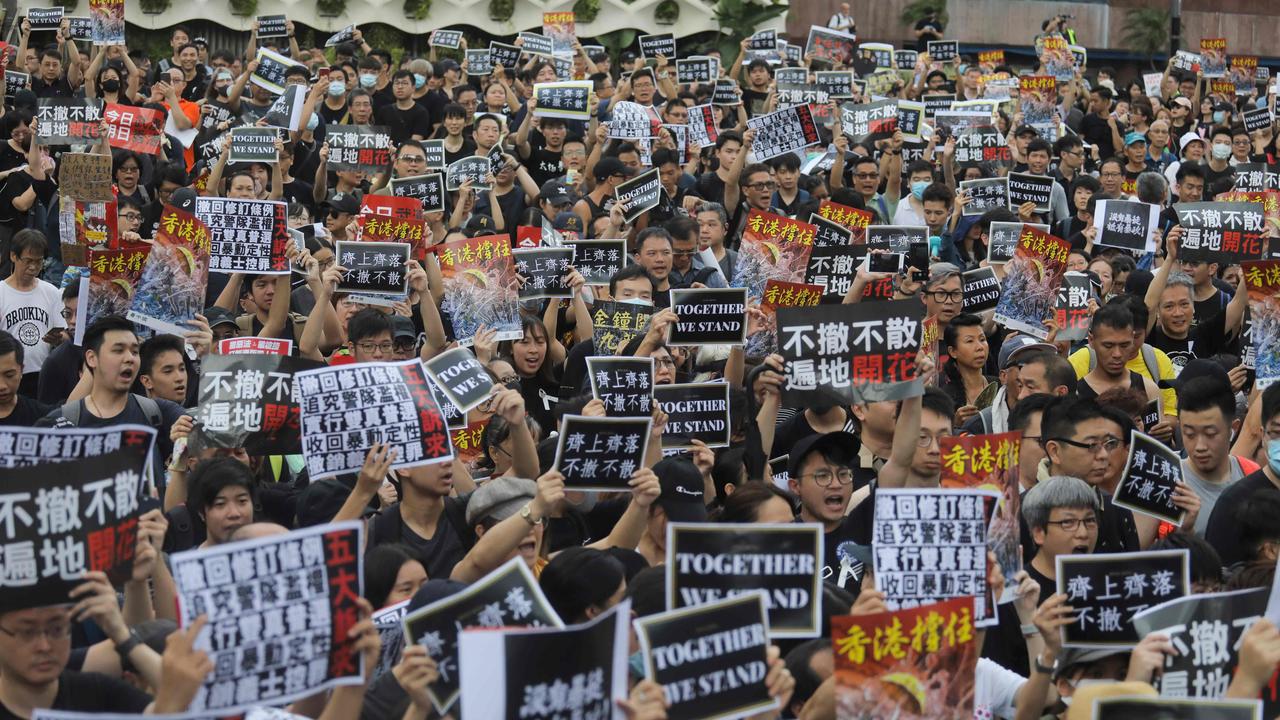
He’d become more scornful of the West’s “free trade is good” mantra, believing it cost Australian jobs and wages and “is killing people”.
He knew communist China was a beneficiary and believed Australia’s trade with China was why political leaders were largely mute on the Uighur situation.
“I wanted people to wake up to the fact that when you have free market fundamentalism, that can lead to propping up a regime committing genocide.”
And he’d learned of UQ’s China-funded Confucius Institute and how the then vice-chancellor, Peter Hoj, had been a consultant to Hanban, the Chinese government agency that oversees the institutes that many argue are a front for Chinese propaganda.
He believed UQ’s reliance on high fee-paying students from China was clouding the administration’s attitude to human rights.
So, with a strong belief in his right to free speech, he staged his protest. A few scrawled placards and about 20 mates.
A megaphone and the tired old cry of “hey-hey, ho-ho”. All preceded by some provocative social media posts that riled Chinese nationalists and alerted them to the protest. Once the melee began, it went viral - and Pavlou was international news.
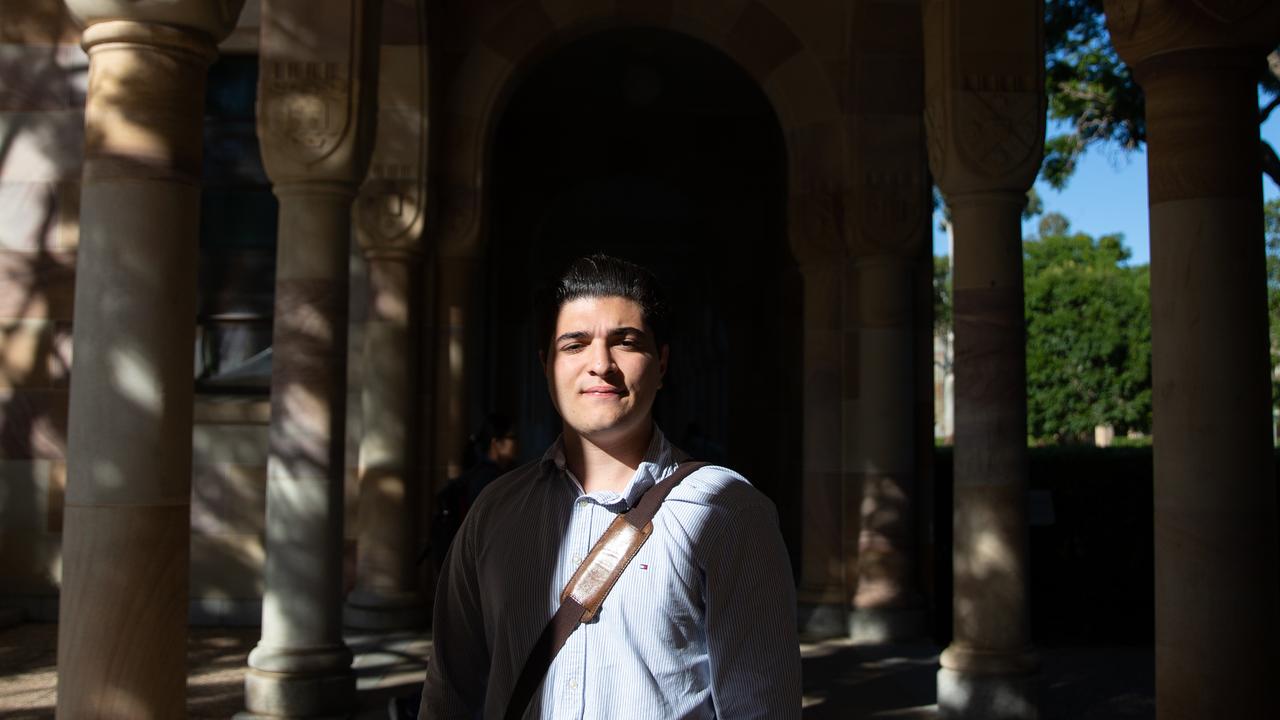
Many things concern Pavlou about the fallout but one of the biggest is the fact that none of the Chinese nationalists – a number of whom Pavlou says were CCP “operatives” and not UQ students - have been brought to account.
“I had a protest, I was assaulted on university grounds and yet my university didn’t support me,” he says.
UQ’s Chancellor, Peter Varghese, told the Senate inquiry it conducted a thorough internal investigation but “was unable to come to a firm conclusion as to who was responsible for the disruption of that demonstration”.
Instead, argues Pavlou, it was him that UQ had in its sights. He believes he was a marked student from the day of the protest because he’d embarrassed the institution and brought its ties with China into focus.
UQ has denied its action against Pavlou was motivated by the protest. None of UQ’s allegations against him were China-related, centring instead on his subsequent antics, with allegations of bullying and intimidating staff and students, often through social media.
“But they were gunning for me from the start,” says Pavlou. “I believe the person who was being bullied was me.”
He’s lodged a $3.5 million case against UQ, Varghese and Hoj, seeking damages for an alleged breach of contract and defamation. UQ has filed a defence and stand by the comments made to the inquiry.
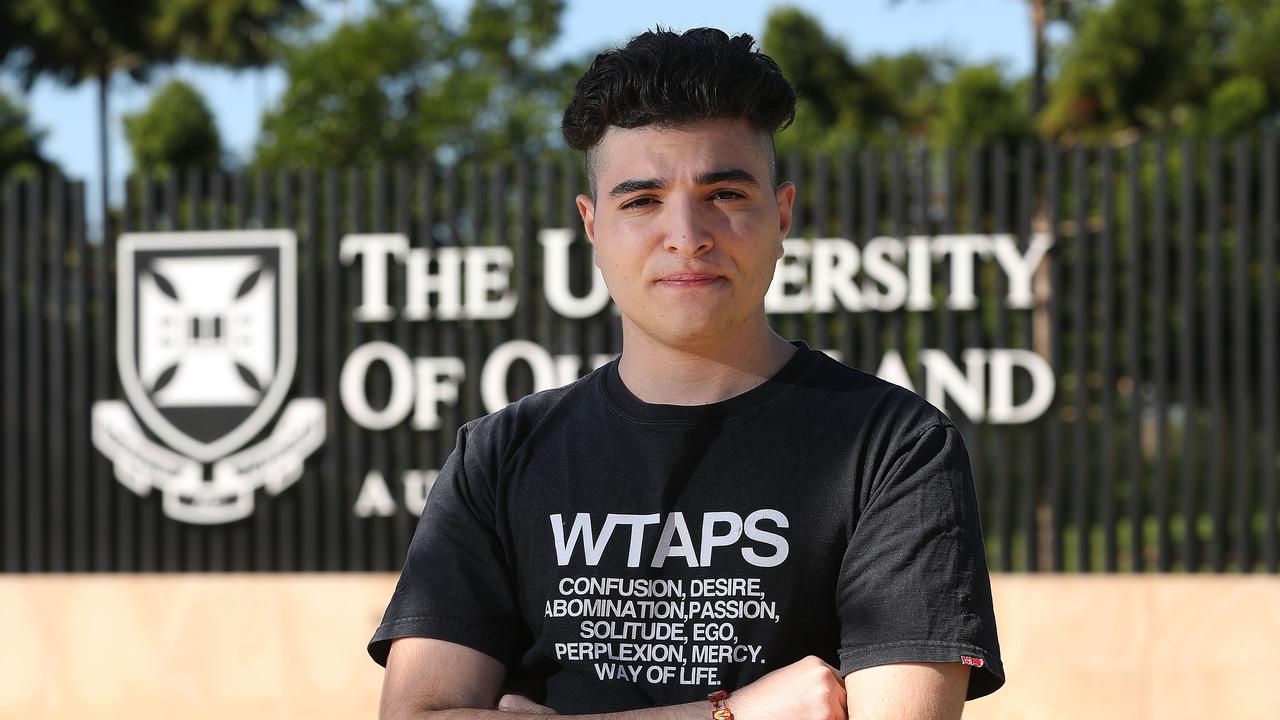
FINDING HIS WAY
A brush turkey mooches across the lawn as Pavlou plays a short video of his dad, Nick, ripping into him after the protest.
The death threats the family received, the risks Pavlou took with his education and future job prospects and his preoccupation with China did not sit well.
“But when Alan Jones started supporting me, my parents really started getting behind me because they love Alan Jones and all their friends watch Sky and they started saying, ‘Your son’s a hero’, and they started liking me. Before that, it was really hard.”
Nick and Pavlou’s mother, Vanessa, were there when he fronted the parliamentary inquiry into national security risks at Australian universities in March.
“My grandfather came to Australia to cut sugar cane and then started a small corner store and his grandson got invited to the Parliament to speak. That was amazing.”
The inquiry is yet to report.
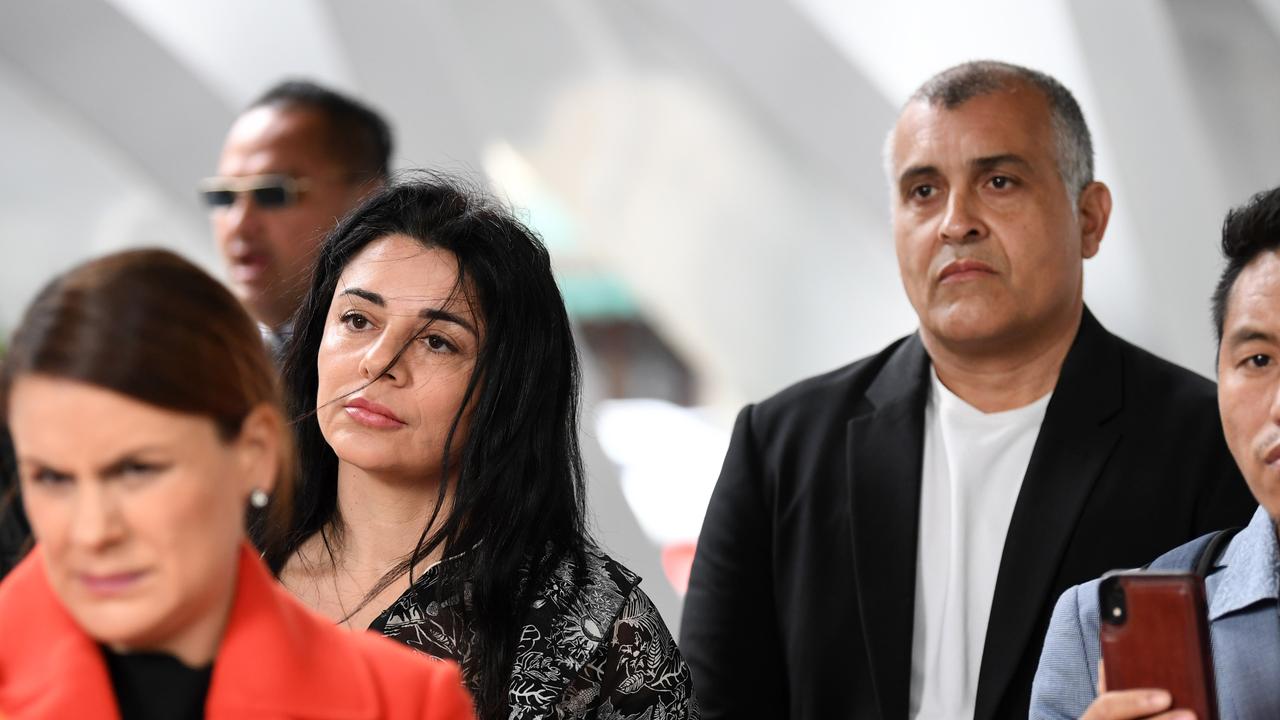
Pavlou believes he’s made a difference, quoting Senator Paterson as saying that without his actions, the amendment to the Higher Education Support Act which strengthens protections of free speech and academic freedom and the Foreign Relations (State and Territory Arrangements) Act 2020 might not have come about.
The new Act puts Confucius Institutes under the spotlight, with foreign veto laws allowing the Foreign Minister to cancel such agreements.
Thursday was the deadline for all universities to lodge their contracts with foreign governments with the Federal Government for scrutiny. Some argue the legislation gives the minister too much power. It was recently used to stop Victoria’s Belt and Road deal with China.
Pavlou denies being used as a pawn for a right-wing agenda. It’s an accusation levelled by some on the Left, especially in the murky world of student politics.
“I’m not just some guy being exploited, I’ve got my own thinking, I’m my own person with my own political beliefs,” he says.
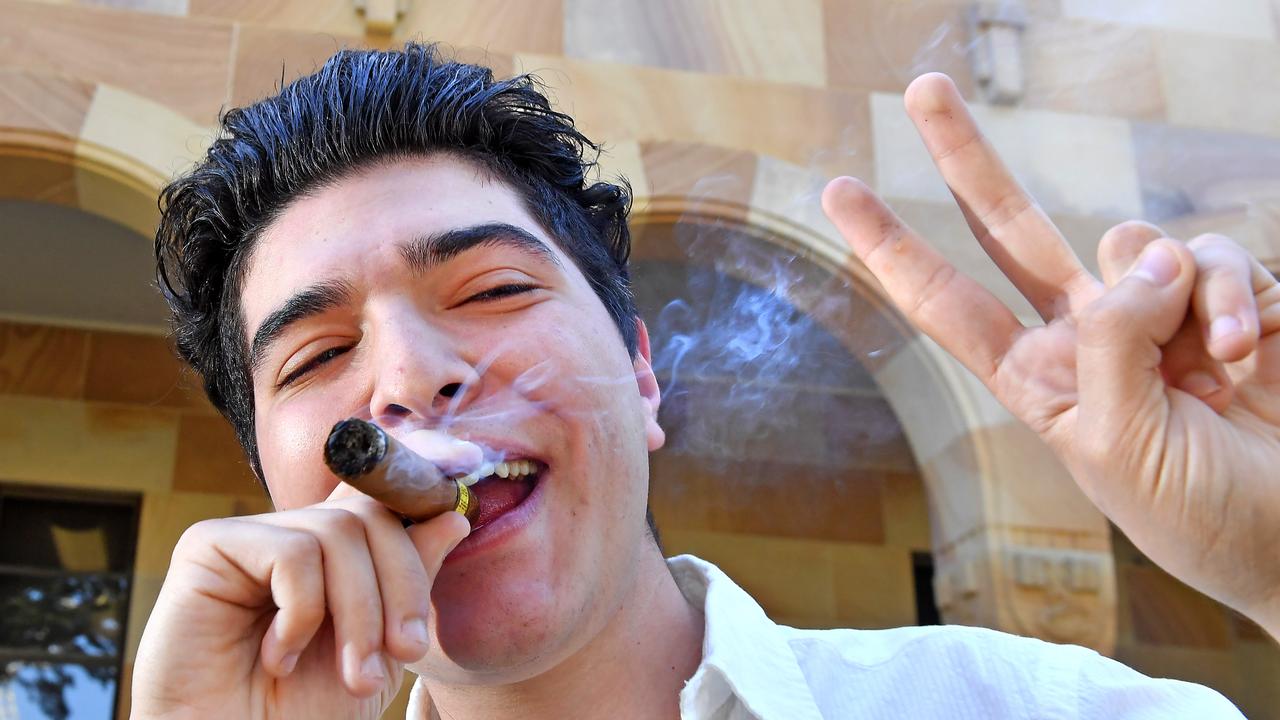
Some of the enmity towards him, Pavlou says, relates to his friendship with the right-wing UQ student, Wilson Gavin, who led a protest against a drag queen reading to children at a library early last year.
The next day, after a furore, Gavin committed suicide.
“I always had huge rows with Wilson because he was an arch conservative and I was a social democrat but we had an intellectual respect for each other,” says Pavlou.
His death brought Pavlou closer to some of Gavin’s right-wing friends, bonding over the futility and danger of culture wars.
“It just destroys people’s lives,” says Pavlou.
“We just came into the middle; I’m still on the Left but we have no time for this culture war shit, manufactured by big media bosses to keep people distracted from real bread and butter issues.
“Through Wilson, and people I never in a million years thought I’d be in touch with, like Bob Katter and James Paterson, I discovered that there are some times when someone who identifies as the Left can work with people on the Right productively. I think what it showed me is all power structures in this country, whether it’s universities or political parties, have a very ossified way of doing things,” he says.
“My hope is that I can wake people up across the Left-Right divide.”
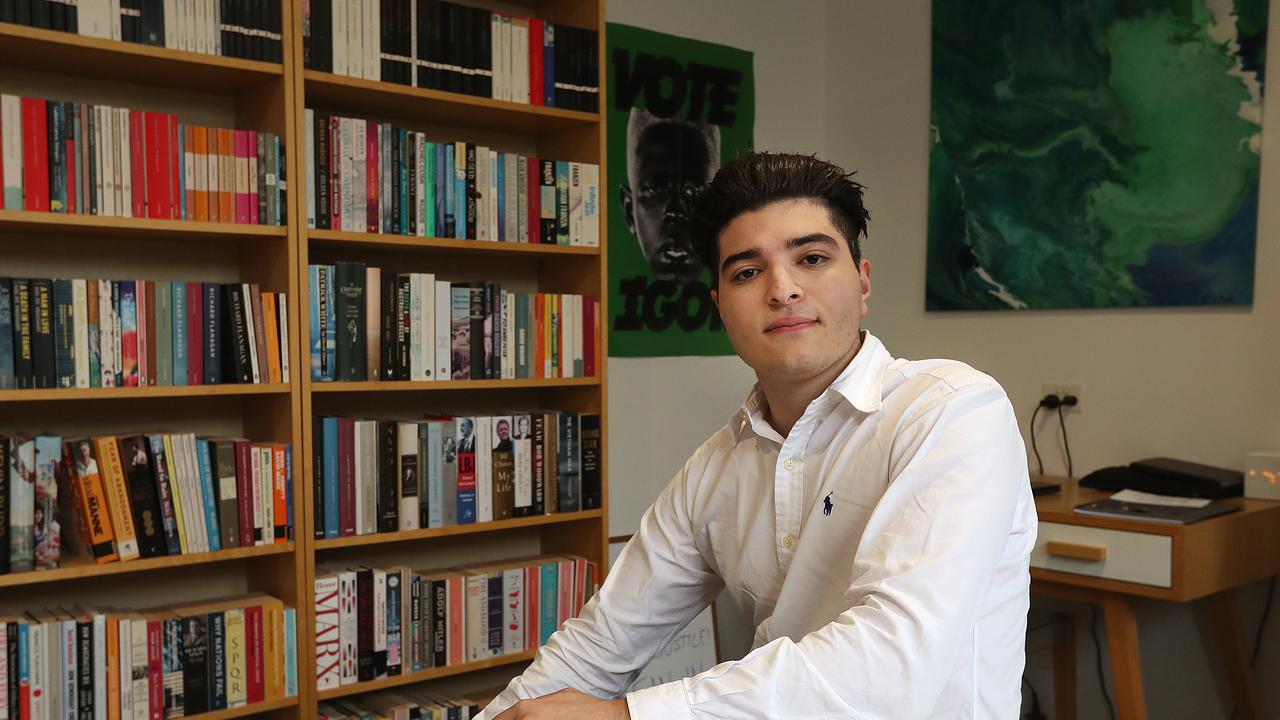
Pavlou has started his own activist group, Defend Democracy.
It’s an embryonic movement with a few followers – the website is light on detail – initiated by what Pavlou sees as the human rights abuses of the CCP and its attempts to subvert democracy internationally but with a broader aim of being “on the side of those fighting for freedom” everywhere.
“Even if it’s an impossible task,” says Pavlou, “it’s like the myth of Sisyphus, rolling the boulder up the hill every single time. You just have to keep going.”
Just what he’ll do to earn a living remains unclear, though. Perhaps he’ll become a full-time activist. Perhaps a human rights lawyer.
He’s been accepted into law at UQ; Tony Morris urged him to apply.
But the most pressing thing for now is to finish his arts degree with majors in history, philosophy and English literature at the end of this year.
“I have to graduate from UQ to prove they couldn’t beat me,” Pavlou says.
“I really want Varghese to have to shake my hand on stage and hand me the diploma. I just want to be like, ‘You f--king tried and I’m still here’.”
For help call Lifeline on 131 114
More Coverage
Originally published as Political aspirations revealed: UQ activist Drew Pavlou in talks with Bob Katter





